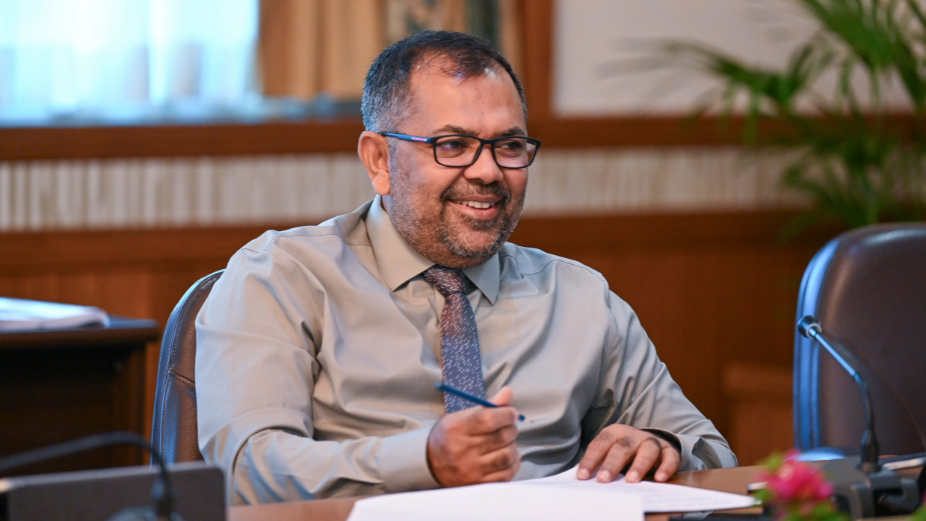
Minister of Foreign Affairs Moosa Zameer has assured that the current economic challenges facing the Maldives are temporary and do not require assistance from the International Monetary Fund (IMF). Speaking to the media during a diplomatic visit to Sri Lanka, Minister Zameer expressed confidence in the resilience of the Maldivian economy and the government’s ability to manage the situation internally.
Accompanied by Minister of Finance Dr. Mohamed Shafeeq, Minister Zameer is in Sri Lanka as part of a broader economic and diplomatic outreach. The Foreign Minister emphasised that the economic situation, marked by a temporary decline in reserves, is manageable without resorting to external financial intervention. He stated that it is not yet time for the Maldives to engage with the IMF, describing the current economic problem as temporary.
Minister Zameer outlined the government’s strategy to navigate these economic challenges, which includes reforms in the tax regime and cost-cutting measures for state-owned enterprises. The Minister also underscored the importance of strengthening bilateral relations with major partners such as China and India. He noted that both nations have been pivotal in supporting the Maldives, reflecting a positive outlook despite the present difficulties.
Recent data indicates some improvement in the Maldives’ financial reserves. Usable reserves rose to USD 61 million in August, up from USD 45 million in July—a 36% increase. This growth forms part of the government’s efforts to stabilise and strengthen the country’s economic position. The Maldivian government remains optimistic about handling the current economic challenges through internal reforms and international partnerships, rather than seeking external assistance.
However, while the government remains confident in its strategies, the situation has attracted scrutiny from international credit rating agencies. Both Moody’s and Fitch have downgraded the Maldives’ credit ratings in recent months, citing concerns about fiscal pressures and a decline in foreign exchange reserves. These downgrades suggest a cautious outlook from global financial markets on the Maldives’ economic resilience.
The downgrades by Moody’s and Fitch reflect apprehensions about the Maldives’ ability to manage its debt obligations amidst a backdrop of reduced reserves. While Minister Zameer has painted a picture of economic stability bolstered by international partnerships, the lower credit ratings signal a warning that economic vulnerabilities remain.
The Maldivian government’s stance on avoiding IMF intervention signals a commitment to maintaining economic sovereignty and implementing home-grown solutions. Yet, with international credit agencies expressing concerns, there is a need for vigilance. The government’s strategy of fostering stronger bilateral ties and reforming internal economic policies may indeed offer a path forward, but the efficacy of these measures will require careful monitoring and possibly recalibration if the situation does not improve as anticipated.
As the Maldives navigates these uncertain economic waters, the balance between optimism and caution will be critical in shaping the country’s economic future.








